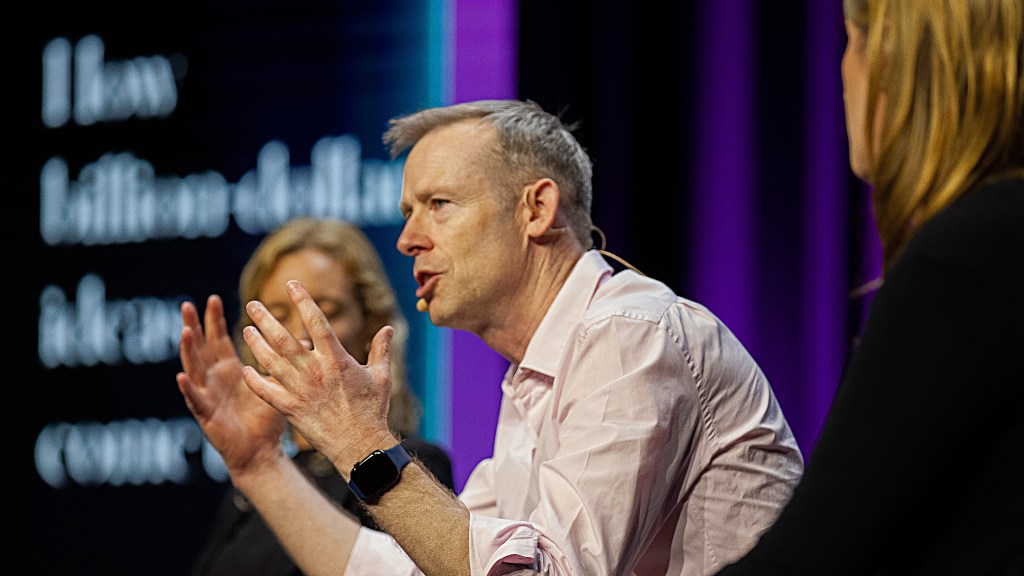Volatile economic conditions will make for a challenging capital raising market in 2023, however businesses should be “cautiously optimistic” for the year ahead, according to leading industry players.

2023 presents new challenges for businesses looking to raise VC funding, according to leading VC legal advisory firm, Herbert Smith Freehills (HSF). However, there is still plenty of “dry powder” ready for the taking for the right businesses, it says.
The past three years have been somewhat of a rollercoaster for the VC raising market. While 2021 was characterised by record levels of investment and high valuations from domestic and international players, market confidence gave way to apprehension in 2022 as tech valuations reduced.
“2022 was the year the system took pause. VC investment deployment dropped, albeit from a record high 2021. Yet generally the Australian market has proven resilient with some marked success stories,” HSF said in its market predictions round-up.
It was a sentiment echoed by VC leaders at the Forbes Business Summit, held in Sydney in late 2022. Three of the country’s most prominent venture capitalists, Rick Baker (Blackbird Ventures), Elicia McDonald (AirTree Ventures) and Kim Jackson (Skip Capital) agreed that while the funding market might change this year. there would still be “white powder” available for strong, mission-led businesses.
HSF has advised on a number of high-profile VC transactions such as Atlassian, Mr Yum, Carma, Sonder, Culture Amp, SafetyCulture, Linktree and Who Gives A Crap. Speaking to Forbes Australia, HSF co-head venture capital, Elizabeth Henderson said the past five to six years have represented record growth in VC funding. The growth – that reached its pinnacle in 2022 – followed the establishment of the intital funds of major market players such as Blackbird Ventures, Square Peg and Airtree.
Henderson says Australia has been shielded from some of the tech shocks and job losses experienced by the US market. However, there is a degree of uncertainty and cautiousness among founders who have never experienced a downturn market cycles before, she says.
“If you look at 2022 against 2020, that April to October period, where everyone here in Australia was saying well, it’s…all very different, it was actually not that different really in terms of the number of fundraisings and the overall amount of funds raised,” Henderson says. “There is an element of saying 2021 was more of an outlier than a benchmark. If you think about it in that way, I tend to see it’s slightly more of a progression [in a natural business cycle] and it’s still continuing.”
Henderson, fellow HSF co -head VC, Claire Thompson and solictor Adam Ong have compiled a list of predictions for the year ahead. They say that while there are a number of market conditions leading to uncertainty, there is still a sense of “cautious optimism” among entrepreneurs and VC firms.
For companies with “a comfortable cash runway” 2023 will largely be business as usual, they say. For some, the year ahead will prompt mergers or earlier than expected exits.
Predictions and tips for the year ahead:
Don’t wait for a better valuation
With tech valuations down, most companies that didn’t have to raise in 2022 opted to wait. HSF’s recent survey of Australian founders revealed that 76% plan to raise capital in the next 12 months – “we expect to see most founders turning their minds to their next priced round from as early as January 2023”, Henderson says.

Blackbird Venture’s Rick Baker has recommended that founders don’t wait too long, telling Forbes Australia’s recent Australian Business Summit it is better for start-ups to raise funds now, if they can, to ensure they have the capital required to deliver on their future plans.
HSF’s Thompson says there was an underlying cautiousness underlying the VC market in 2022, leading many companies to choose to postpone their capital raising plans. While it might be a more complicated process to raise capital in 2023, she agrees that businesses that are able to raise funds should do so.
“We definitely predict in the next year, there’s going to be a lot more [companies] that are coming to market and we’re going to see a return to priced rounds, which brings with it a little bit of complexity for those who chose to raise with SAFEs and convertible notes in 2022.”
Companies that opt for funding in 2023 will be subjected to priced rounds (including SAFEs and convertible notes) which are by nature, more complex, Thompson says. Companies will need to be focused on due diligence in order to secure access to funding.
Industries to watch
Financial technology companies tended to dominate VC raising activity in 2022, particularly in terms of larger VC deals.
“I think in Australia … fintech and enterprise SaaS are both probably the more mature industries within the startup ecosystem,” Thompson says. “So naturally many of the larger companies tend to attract larger cheque sizes through their raises.”
Businesses to watch include climate and clean technology start-ups as “investors look for businesses that have impact as well as generate financial returns”, she says. Ag tech is also an industry that is prime for growth as the industry focuses on improving its processes and efficiencies around environmental issues. Biotech and health and wellness businesses will also feature heavily in in 2023.
“I think we’re going to see the next generation of companies be born,” Thompson says.
Play it SAFE
There was a wave of bridging rounds in 2022 for various reasons, including lengthening cash runways and deferring landings on valuations. In some cases, investors also wanted to provide certainty and peace of mind to founders so that they could “focus on the business with fewer distractions,” HSF says.
“We expect this trend to continue through 2023, particularly if tech valuations are slow to recover,” HSF’s Henderson says.
Companies and investors should be mindful of the complexities of SAFE (a Simple Agreement for Future Equity) and convertible note economics, especially when multiple instruments are “stacked” on each other.
“They should also avoid unintended down rounds by considering a floor on any discount at the last valuation.”
Do the due diligence
Capital raising is likely to take longer in 2023, with companies focusing on due diligence and improving cash-flow, HSF says.
So how can founders set themselves up for success in this environment? Prior planning, organisation and responsiveness are key. Keeping data and paperwork up to date is important element of this, according to the advisory firm.
Time to re-think exit planning?
With a changing cost of capital, HSF says it expects to see some founders and boards review exit and liquidity strategies as well as mergers and acquisitions.
“These kinds of discussions should take place recognising that different stakeholders may have different drivers and in any exit while a company is still in a growth phase, the founders remain critical to the go-forward business.”
People are key
Huge staff layoffs among global tech companies, such as Twitter, Meta, Amazon and Tesla, means more talent will be “on the move”, according to Thompson. It may also mean that more cashed-up tech entrepreneurs are ready to launch their own ventures, she says.
“We’re seeing a lot of big tech companies downsize and presumably there will be a lot of Australians based in the Silicon Valley and elsewhere who think this might be a good time to come home. Hopefully they’re creatively inspired to start their own businesses and it’s exciting to see what they might create.”
In 2023 start-ups will increasingly look to employee equity incentives to reward, retain and motivate staff, according to HS.
In Australia, regulatory changes in 2022 have sharpened the focus of founders, start-ups and their boards on the disclosure rules for offering employee equity. The nature of the new reforms may increase the adoption of zero exercise priced options, rather than options with an exercise price equal to the market value.
Mature unicorns become the leaders
As the first generation of Australian unicorns consolidate their growth and global reach, they will begin to contribute back to the ecosystem that gave them their start, HSF says.
Founders and family offices of Australian success stories like Atlassian, Canva, Culture Amp, Safety Culture, Linktree and Mr Yum are strongly supportive of the Australian ecosystem, and we believe many founders will continue to back local start-ups, including through initiatives like Sidestage Ventures and The Fund.
Already tech entrepreneurs such as Atlassian co-founder, Mike Cannon-Brookes, is investing in the next generation of environmentally-focused tech businesses, through his philanthropic venture, Boundless.
Look for the green shoots
Cautious predictions should not deter companies with strong business fundamentals, missions and cash-flow to seek funding in 2023, according to the experts.
The last three quarters of 2022 saw significant capital raises my companies such as Sonder, Vexev, Greener, Gamurs, Reejig, 6Clicks, Great Wrap and Rentbetter.
“There is no shortage of dry powder – this year we’ve seen record fundraises by leading Australian VC Funds including Square Peg, OIF Ventures and Blackbird, and we expect to see more from these players in 2023,” Thompson says.
What the VC’s are looking for in leaders
- Founders who live and breathe their idea and feel an overarching need to solve a problem (Rick Baker, Blackbird Ventures)
- Don’t be secretive: “someone says I have a really amazing idea, but say ‘I can’t tell you about it because it is super-secret’”. Signing non-disclosure agreements is rare in (Rick Baker, Blackbird Ventures)
- Founders with some naivety but a curiosity to learn more are appealing. Knowing what they don’t know but having the “passion and drive” to execute a plan is important (Rick Baker, Blackbird)
- Being able to articulate what you do very well and the ability to talk about how you plan on making that happen (Elicia McDonald, AirTree)
- Having lived through some challenges and learned from it is appealing (Elicia McDonald, AirTree)
- Passionate founders looking to solve large, painful problems who are looking to make the world a better place (Kim Jackson, founder Skip Capital)
- Founders should be able to succinctly describe the problem they intend to fix and how in two paragraphs (Kim Jackson, Skip Capital)
- The ability to think differently about solving common problems (Kim Jackson, Skip Capital)
- Don’t forget the name of the person you’re talking to, or the company – which can be common when talking to numerous potential VC investors (Kim Jackson, Skip Capital)